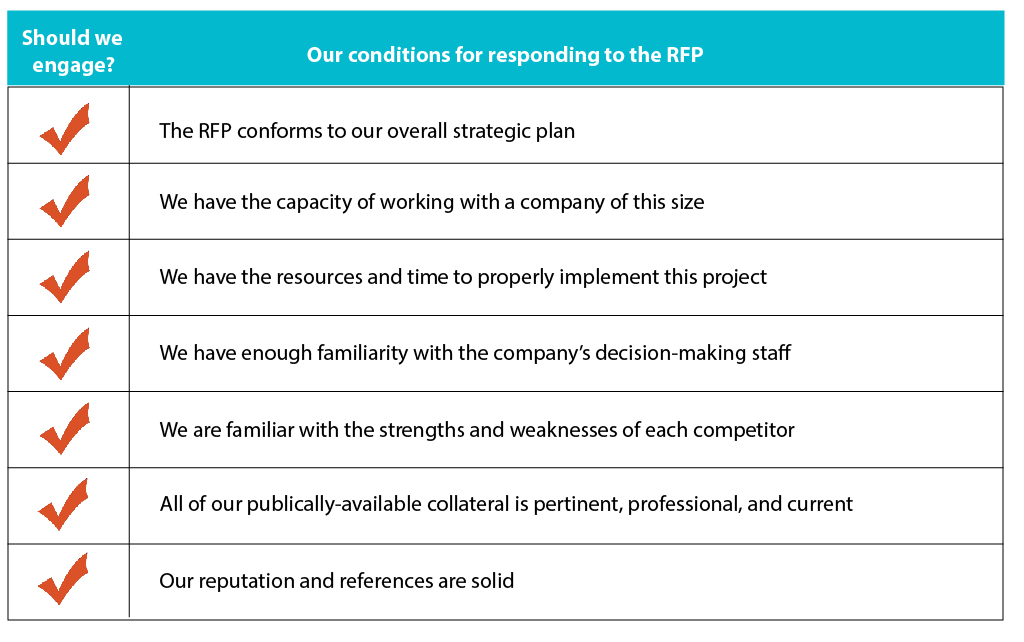
Discover the thrill of winning more deals
There is an art to writing a Request for Proposal (RFP). The response process is not necessarily fun, but for certain types of B2B companies, it is necessary.
The most common mistake respondents make is in simply answering the questions exactly as asked and being lead through the specific form instead of finding opportunities to conform their answers to their strengths.
Too often RFPs consist of a mechanical list of questions designed to make quantifying the decision easier for the client. While a spreadsheet analysis does make the selection process easier, it pits the suppliers against each other as if the product or service was a mere commodity, ignoring the ‘softer’ differences in the quality, delivery, and service.
How you create your response is just one element of the process. If you should even engage in the process is an equally important element. Is it a piece of business that fits your company’s profile for taking on new customers? Has the requester already settled on a supplier but is using the RFP as a means of checking off the box requiring periodic supplier review?
Conditions to consider before committing to an RFP response
Never assume that you should respond to every RFP sent your way. Here are seven conditions you should consider before taking on the substantial work of creating your RFP response and taking on the job if you are selected.

How I can help
I can help you discover the weak areas within your business that are working against an integrated approach to effective marketing.
We all have blind spots that to an outside observer can seem obvious, and discovering those for clients is something I’m especially good at. Whether the issue is the lack of a strategy, poor customer/prospect communication, poor use of social media, ineffective web presence, weak sales efforts, or some other marketing-related need, I can provide you with greatly beneficial guidance and coaching.
